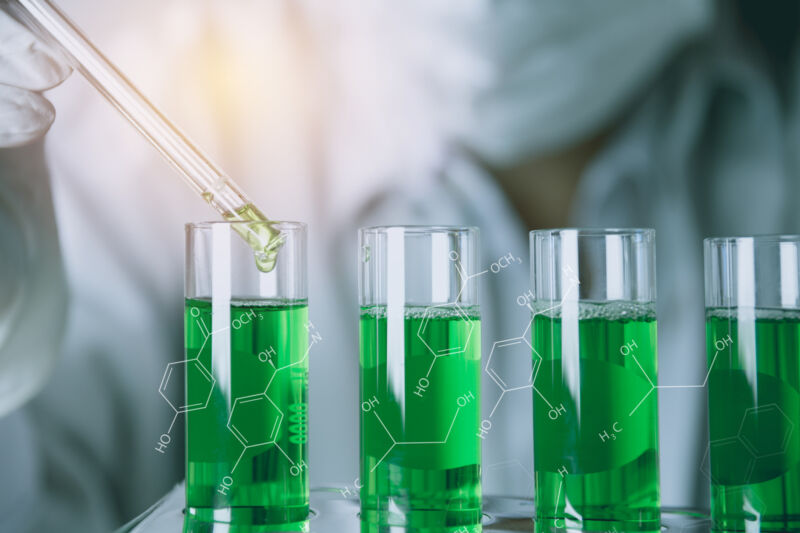
Enlarge (credit: Krisana Antharith / EyeEm)
Earth Day was April 22, and its usual message—take care of our planet—has been given added urgency by the challenges highlighted in the latest IPCC report. This year, Ars is taking a look at the technologies we normally cover, from cars to chipmaking, and finding out how we can boost their sustainability and minimize their climate impact.
Countless things we use in modern societies, from food to food containers, rely on industrial-scale chemistry. That chemistry often produces materials that aren't useful to us—and in some cases, they're hazardous or toxic. Not only are these materials wasteful, but paying to dispose of them safely can add to the costs of materials.
Early developments in green chemistry have mostly focused on finding reaction pathways that limit the production of unwanted byproducts and the use of toxic solvents. But researchers are looking beyond that, trying to find ways to better integrate chemistry into a circular economy, where source materials are either sustainable or recycled.
No comments:
Post a Comment